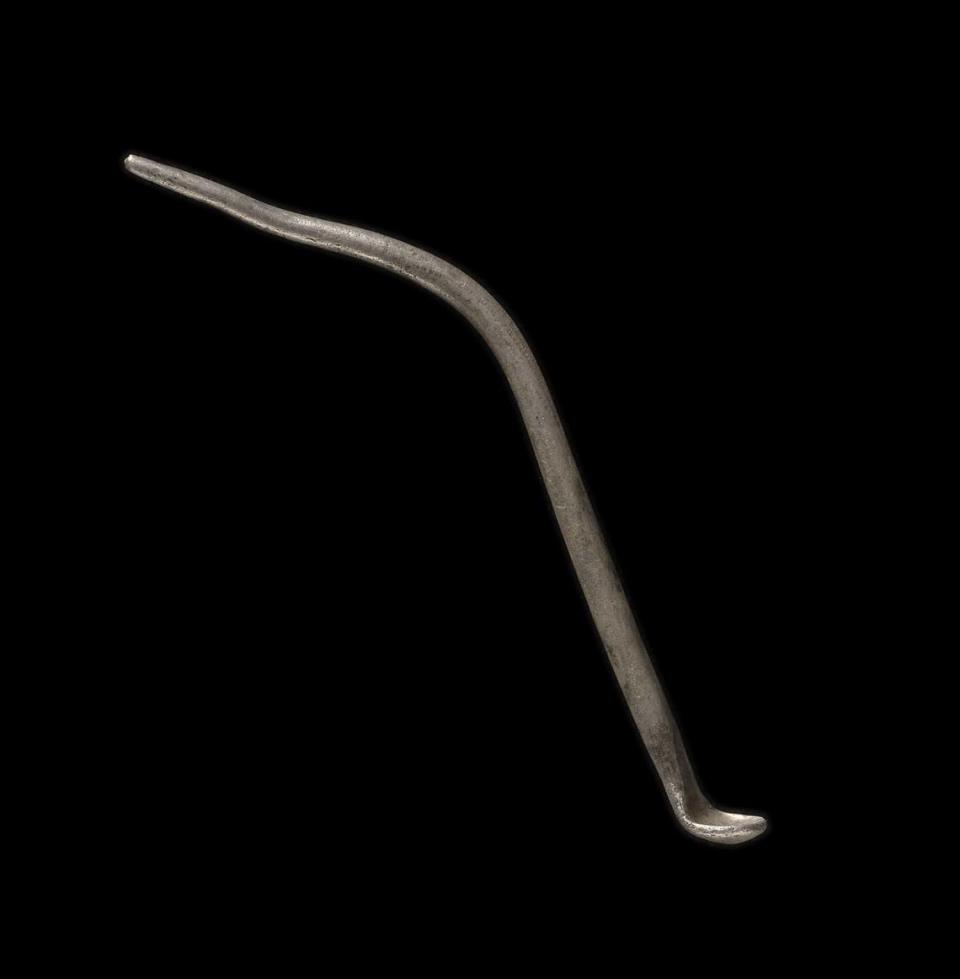Metal detectorist stumbles on ancient Roman treasure — a ‘toilet spoon’ — in Wales
A metal detectorist in Wales unearthed an unusual ancient Roman treasure — a “toilet spoon” — that served several purposes, according to archaeologists.
Valentinas Avdejevas was using a metal detector in Saint Nicholas and Bonvilston in 2020 when he stumbled upon a bent object, the Amgueddfa Cymru Museum Wales said in a Jan. 25 news release shared with McClatchy News.
Avdejevas reported the find to archaeologists who identified the silver treasure as an ancient Roman ligula, or a “toilet spoon.”
A photo shows the silver tool. It has a very long handle with a small “circular bowl” on one end, the museum said. The spoon was originally straight but was “bent out of shape in two places.”

“A variety of uses have been suggested for Roman ligulae,” archaeologists said. These include extracting “cosmetics and perfumes from long-necked bottles,” extracting medicines, applying cosmetics and aiding in “medical procedures.”
The British Museum described Roman ligulae as a “general-purpose object widely used as a toilet and cosmetic” tool.
Archaeologists think this “toilet spoon” in particular could have been used for medical purposes because of “silver’s antimicrobial properties.”
Museum officials did not give an exact age for the silver spoon, but, based on historical context, it could be over 1,600 years old.
The ancient Roman empire invaded the modern-day United Kingdom around 40 A.D. and maintained control of the area until 400 A.D., according to Britannica.
Saint Nicholas and Bonvilston is a community in the Vale of Glamorgan, about 140 miles west of London.
Metal detectorists stumble on ancient sacrificial site in dry lake. See the offerings
Sprawling cemetery — with 160 child graves — sat untouched for 1,300 years. Until now
Massive 2,600-year-old temple — unlike any other — unearthed on hilltop in Greece

